The 2nd International Case Writing and Teaching Workshop for MBA Schools was held at the Shenzhen Institute of Economics and Management (SIEM), Tsinghua University from August 21-23, 2024. The event was hosted by the China National MBA Education Steering Committee (MBACN) and the Association of Chinese Graduate Education and organized by the China Business Case Center at Tsinghua University School of Economics and Management (Tsinghua SEM) and SIEM. More than 60 MBA program instructors from business schools across China attended the event. ZHAO Ziqian, administrative director of the China Business Case Center at Tsinghua SEM, hosted the opening ceremony.
WANG Ping, director of the Secretariat Office of MBACN and secretary general of the Business Administration Working Committee of the Association of Chinese Graduate Education, delivered the opening address. She said case study serves as a critical link between MBA education and management practices, establishing themselves as essential components of MBA programs. It is generally recognized that in China, developing and producing high-quality case education is recognized as vital for improving MBA curriculum. WANG emphasized that with graduate education in China seizing new opportunities, business schools must focus on producing high-quality cases to advance their professional master's programs. Additionally, case studies can help local enterprises to share their insights and experiences with the Chinese market and the outside world. The goal is to ensure that Chinese case writing meets international standards for writing and publication.
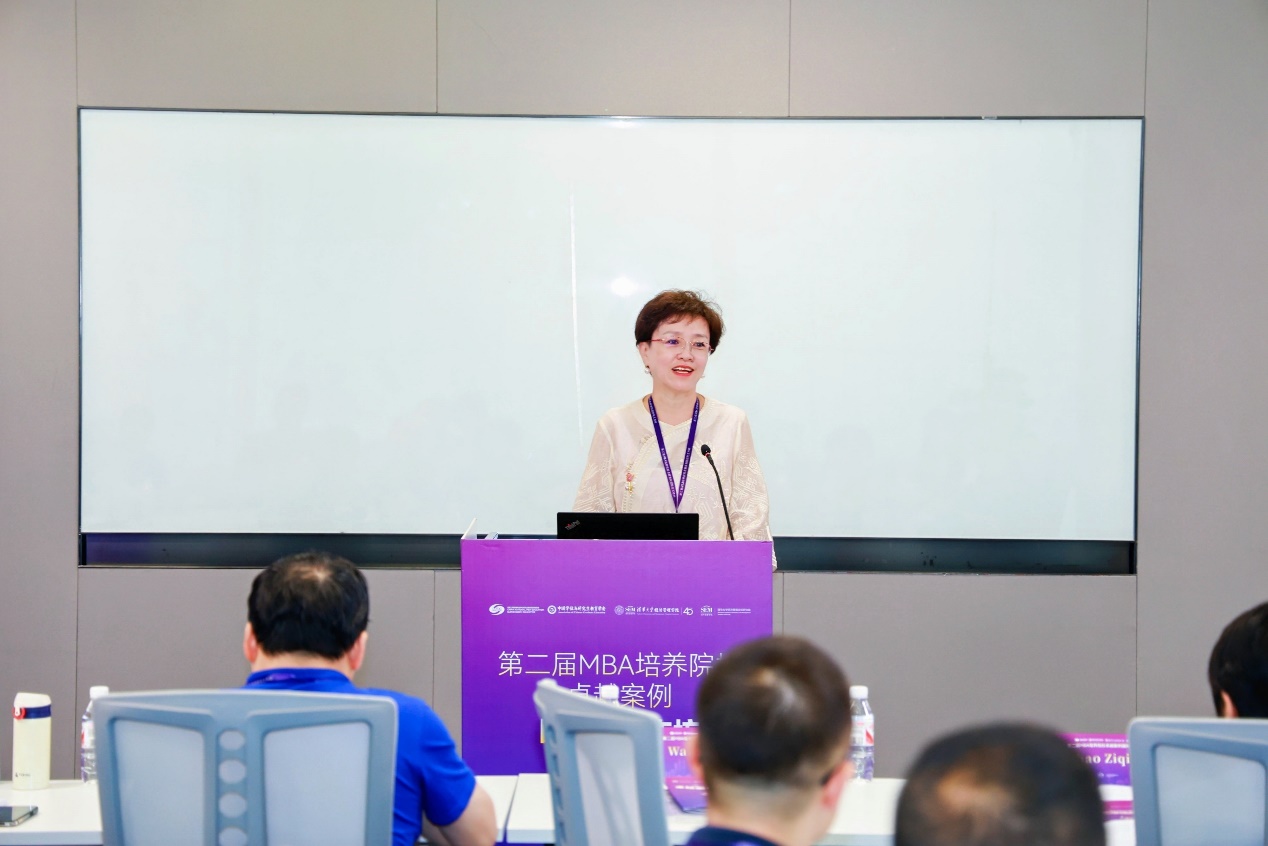
WANG Ping delivers the opening address.
LI Jizhen, associate dean of Tsinghua SEM, welcomed the guest speakers and attendees on behalf of the school, and expressed his gratitude to the hosting organizations. LI noted that Tsinghua SEM was among the first business schools in China to adopt the case teaching method and engage in case writing. The school operates a national case publication and distribution platform and is committed to leading the promotion of the case teaching method. Tsinghua SEM aims to enhance domestic professors' case writing skills and advance internationally accepted case-writing practices. The primary goal of the workshop is to broaden attendees' perspectives and provide them with a dynamic in-class experience of case teaching pedagogy. By featuring prominent case educators from leading business schools where the case method is prevalent, Tsinghua SEM seeks to offer valuable insights into case teaching, writing, translation and cross-cultural writing. This effort is intended to help local case writers produce more effective and relevant teaching materials tailored to the Chinese context.
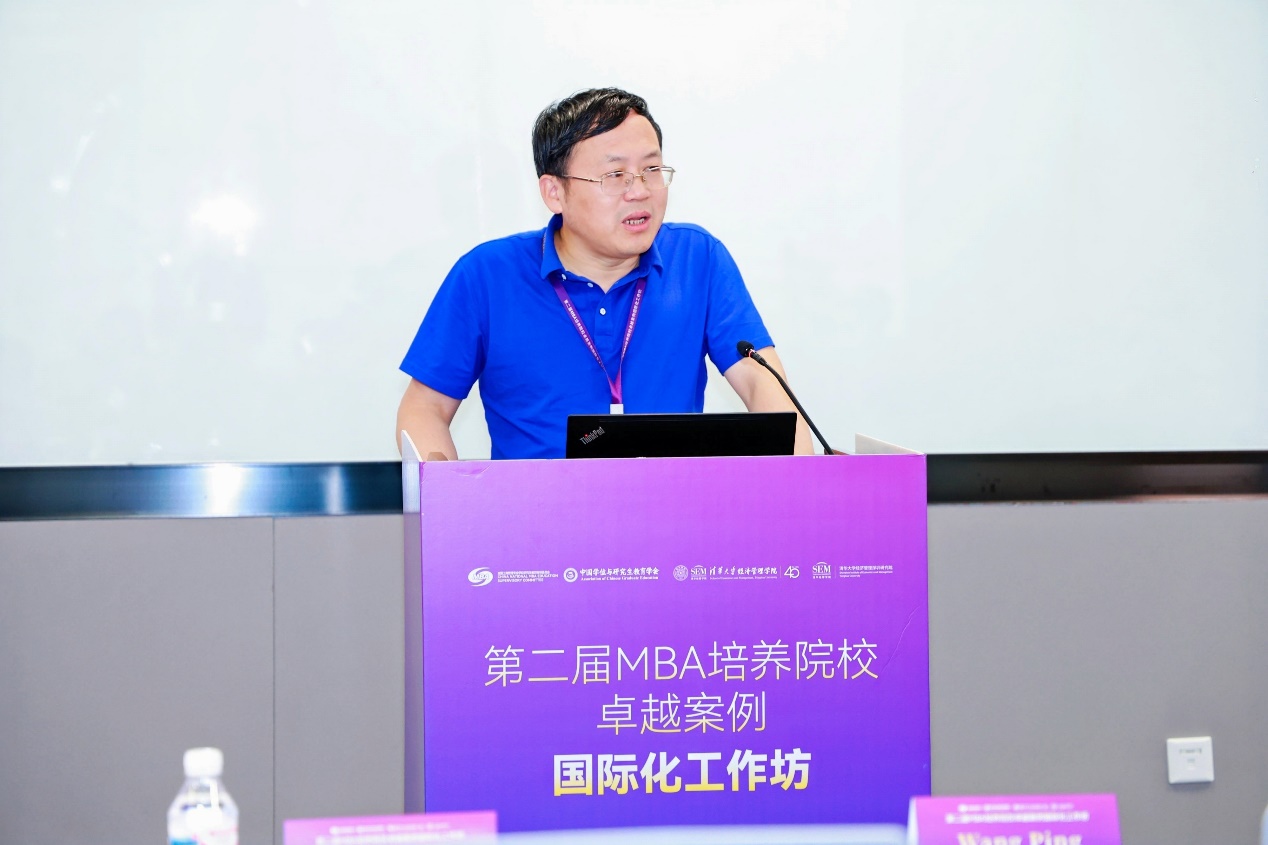
LI Jizhen delivers his welcome speech.
Professor LI Jizhen led a session on "AI Open Innovation Ecosystems," demonstrating the case method. He used cases from BEKE, HarmonyOS and ZY Research Institute to facilitate an in-depth classroom discussion on the evolution, core elements and basic principles of AI open innovation ecosystems. LI highlighted that key factors in there ecosystems include transformative mindset, decentralized organizational structure, attractive business models, and innovative government. These factors align with traditional Chinese wisdom about synchronizing favorable timing, geographical conditions, and human factors.
LU Lin, a professor at Antai College of Economics and Management, Shanghai Jiao Tong University, spoke on "From Case Teaching to Case Writing: Growth of an MBA Instructor." She explored the role of case teaching in developing MBA students' skills to address real-world issues, think critically, and solve problems. LU also highlighted the integration of new management theories and cutting-edge industry practices into case discussions to make classroom learning more relevant to business. She noted that guiding students to actively engage in case preparation helps enhance teamwork and leadership skills.
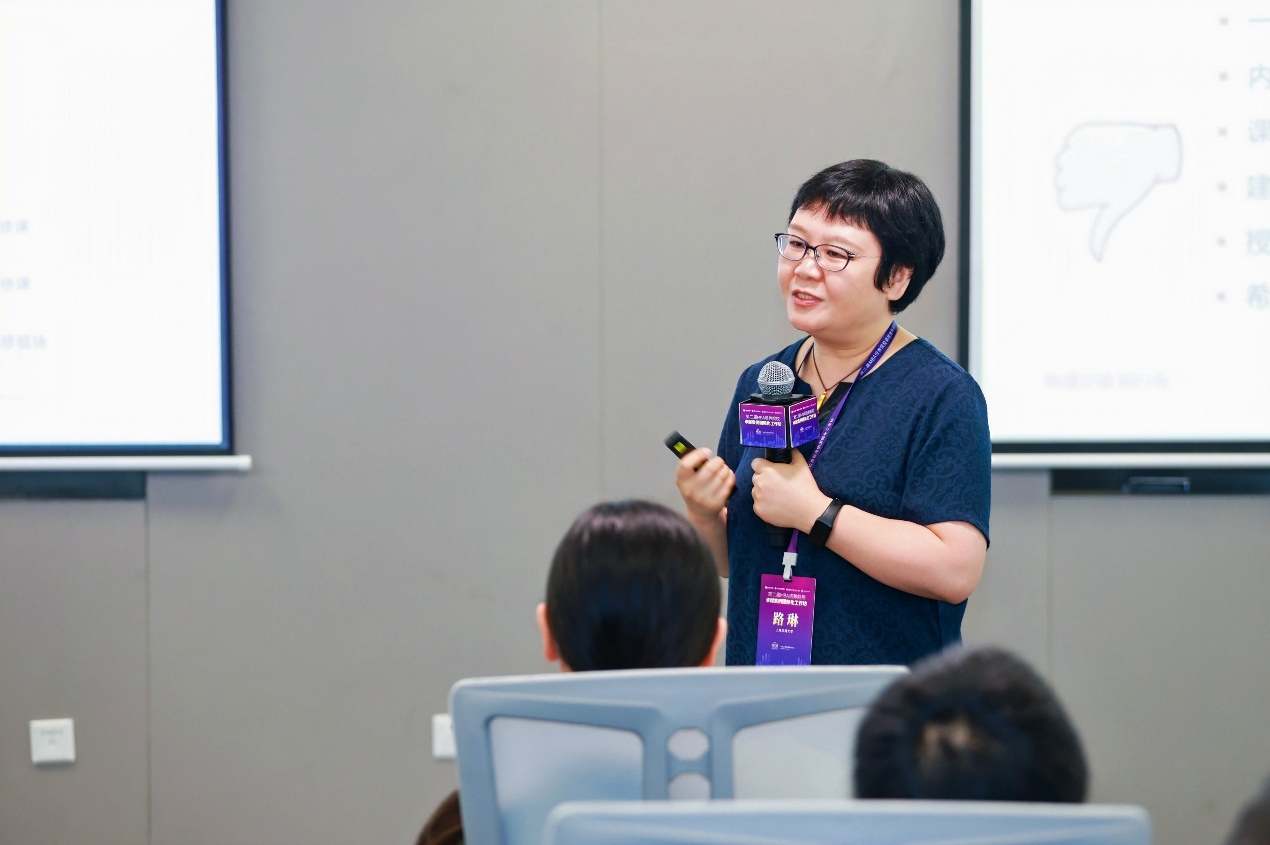
LU Lin shares her experiences with the case method.
Andreas Schotter, a professor at Ivey Business School, University of Western Ontario, delivered a day-and-a-half lecture on case writing and teaching. Using various classroom management techniques, including discussions and group work, Schotter demonstrated the intricacies of case writing and teaching. He urged participants to develop challenging, insightful, and current cases, noting that such cases are most effective in sparking student curiosity and fostering engaging classroom discussions.

Andreas Schotter
ZHAO Ziqian shared her expertise on international case publication. She addressed the differences between typical Chinese cases and high-quality, bestselling cases featured on international platforms. In her presentation, titled "A Guide for Chinese Case Writers," ZHAO stressed the importance of rigorous writing, a well-structured format, and formal language must be adopted. She said all content must undergo global scrutiny once published. ZHAO highlighted the challenges Chinese cases face in meeting international standards and advised authors to adopt cross-cultural perspectives and pay meticulous attention to detail.
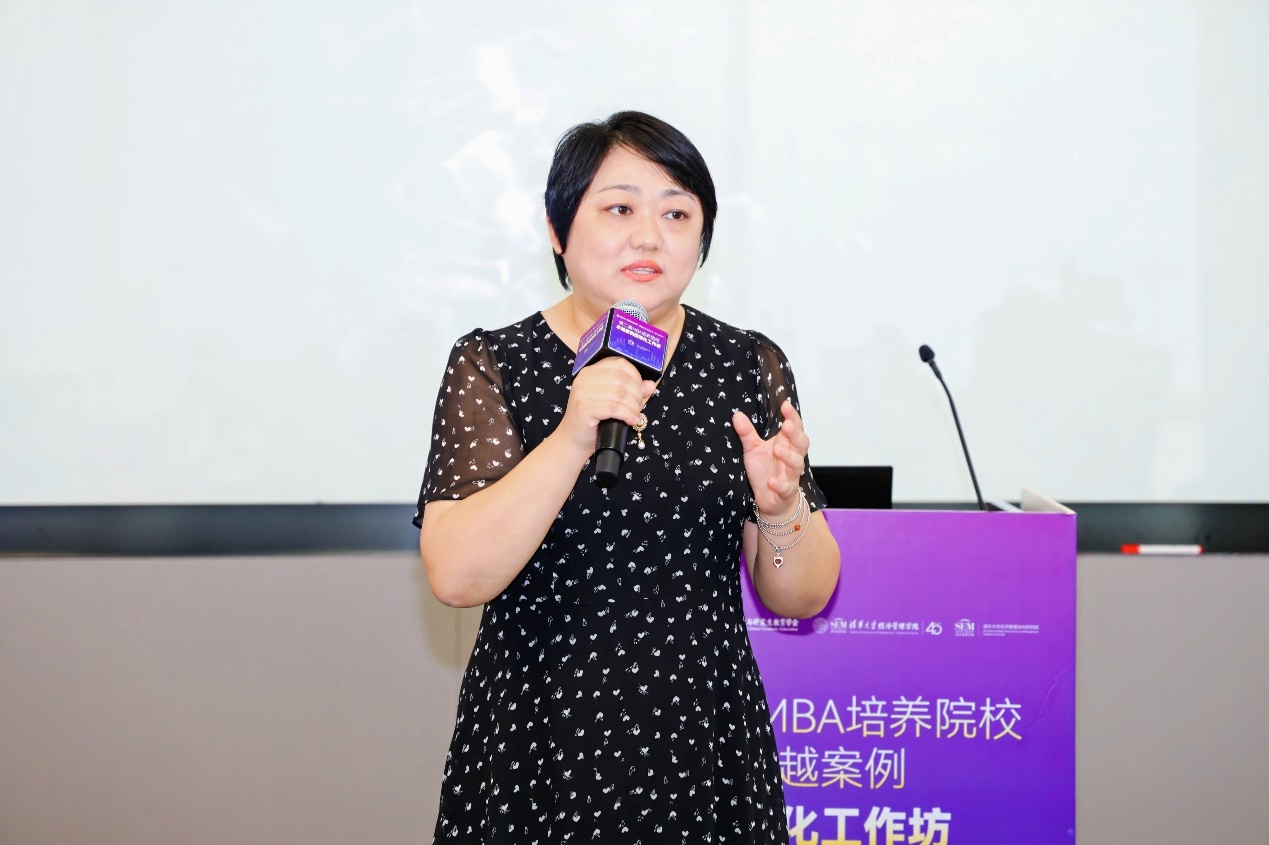
ZHAO Ziqian
CHEN Hao, associate professor at Shenzhen Technology University Business School, delivered a speech on "Case Writing and Teaching in China and Abroad: Key Characteristics." Drawing from her experiences with case-based teaching, CHEN outlined various types of cases, including regular, short, and video. She explained the unique features, advantages, and drawbacks of each type in terms of teaching effectiveness.
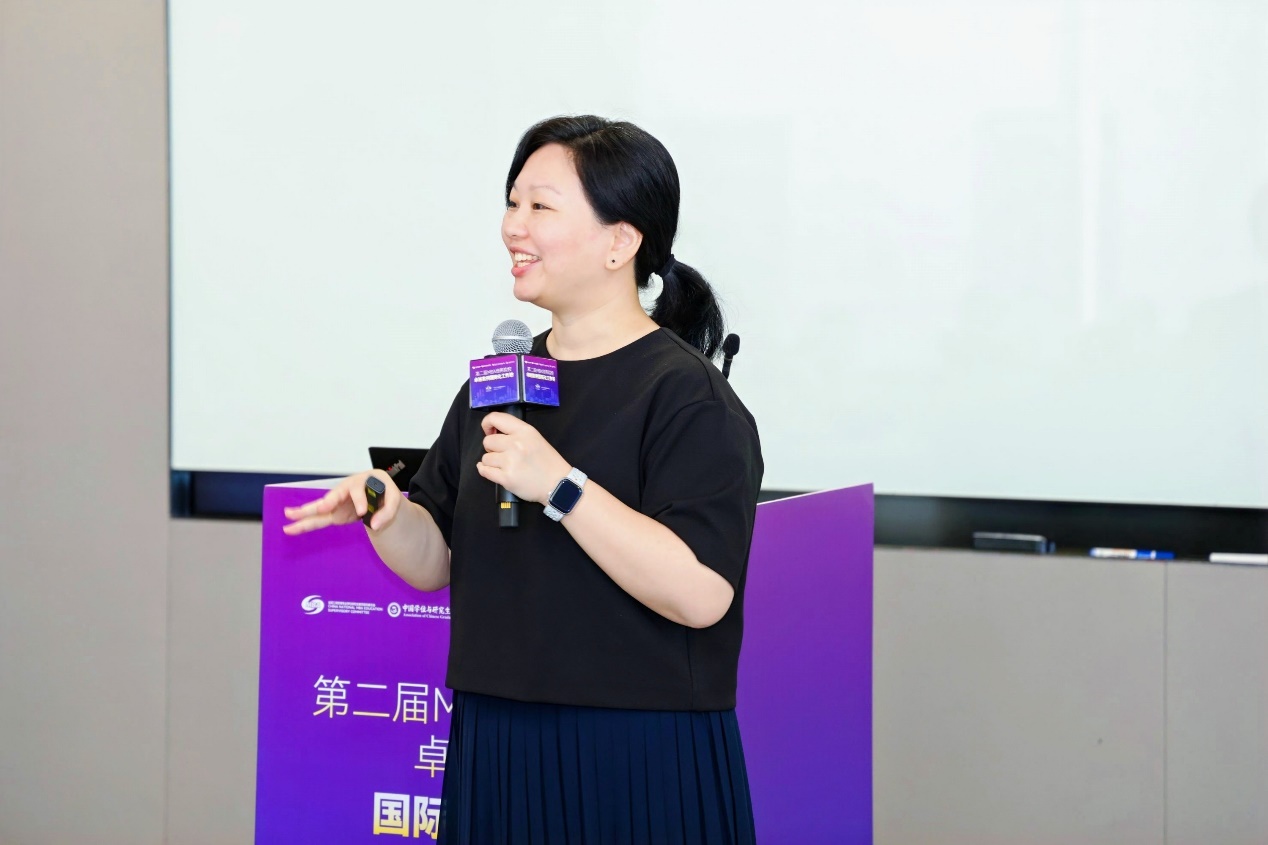
CHEN Hao
HANG Min, a professor at the School of Journalism and Communication, Tsinghua University, provided a new perspective with her talk titled "What Chinese Stories does the World Want? An International Communication Disciplinary Perspective." HANG explored the challenges and opportunities China faces in shaping a positive global image and enhancing its voice in international discourse. She emphasized that creative writing, grounded in authentic narratives and enriched by intellectual interpretation, offers valuable opportunities to improve business understanding and foster cross-border exchanges, while also strengthening China's position in the global economy.
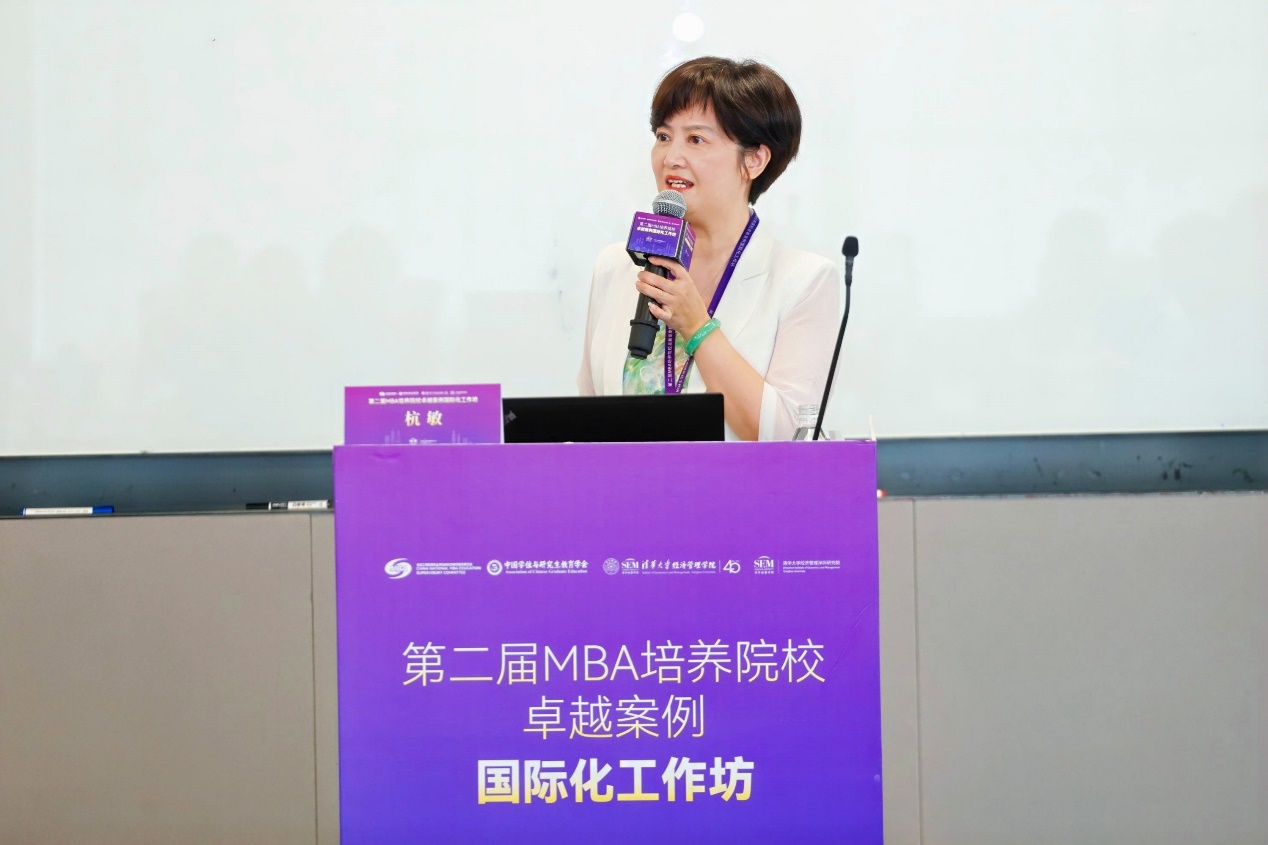
HANG Min
The workshop is the second in an annual series of case workshops, which began in August 2023 at Tsinghua University. The series aims to bridge China with global practices in case teaching and facilitate the international publication of case materials developed in China.
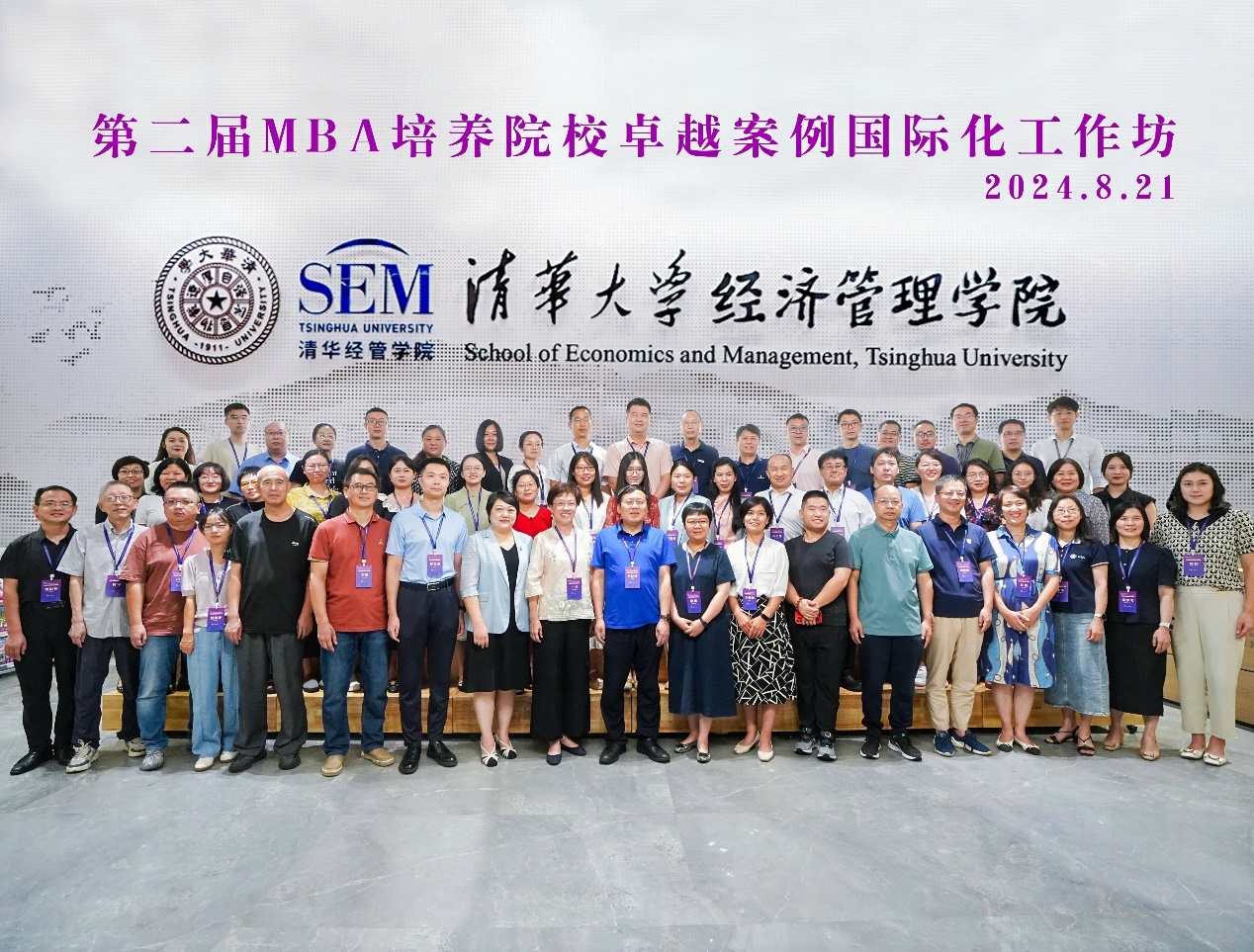
Group photo
 Latest News
Latest News